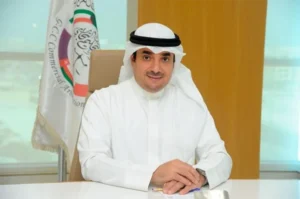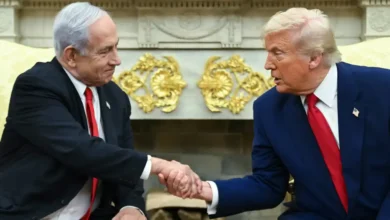Indian Prime Minister’s visit to Kuwait ushers a new era of cooperation

By Tareq Yousef AlShumaimry
The Indian Prime Minister Narendra Modi’s visit to Kuwait is poised to further strengthen the long-standing ties between the two countries. The State of Kuwait and the Republic of India, share a rich history of friendship and cooperation, which is rooted and grounded in centuries of commercial, social, and cultural exchanges.
The Indian Prime Minister’s historical visit is more than a symbolic gesture; it serves as a reaffirmation of the commitment between India and Kuwait to deepen and diversify their bilateral cooperation.
Importantly, the Indian Prime Minister’s meetings with the Kuwaiti leadership are anticipated to pave the way for new avenues of cooperation and synergy, bolster economic ties, and foster partnerships aimed at creating a brighter future for both nations and their people.
While bilateral trade between Kuwait and India remains robust, there is significant potential to expand it beyond its traditional pillars of oil and food, which have been the cornerstone of their trade relations for decades.
Historically speaking, Prime Minister Narendra Modi’s visit to Kuwait, the first by an Indian Prime Minister in 43 years, holds immense significance as Kuwait currently chairs the Gulf Cooperation Council (GCC) and plays a pivotal role in the current global landscape. Kuwait marks the final stop in Prime Minister Modi’s visits to the six GCC countries, following his earlier trips to the other five member states.
Since Prime Minister Narendra Modi assumed leadership in 2014, one of the most significant shifts has been the elevation of the Gulf region to a strategic partner and a priority in India’s foreign and security policy.
As Kuwait works to diversify its economy away from dependence on oil revenues, there is tremendous potential for India and Kuwait to explore new avenues of collaboration in non-oil sectors. PM Modi’s visit can serve as a catalyst to promote joint ventures in areas such as IT services, investment, renewable energy, healthcare, engineering, and advanced technology.
Moreover, with India’s world-leading companies in the services sector, Kuwaiti businesses have an excellent opportunity to explore joint ventures, particularly in ICT, semiconductors, and space technology. These collaborations can also extend to the thriving startup ecosystems in both nations, fostering partnerships where young entrepreneurs from India and Kuwait drive innovation and create new business opportunities.
As the Kuwaiti government advances its ambitious “New Kuwait 2035” development plan, which emphasizes growth in the non-oil sector, Indian companies are well-positioned to play a pivotal role.
Nonetheless, Indian companies can contribute directly through the Kuwait Direct Investment Promotion Authority (KDIPA) or collaborate via joint ventures with public and private sector companies facilitated by the Kuwait Authority for Partnership Projects (KAPP).
Additional opportunities for expanding and enhancing bilateral trade between India and Kuwait include infrastructure development, particularly in air, sea, and rail transport networks; smart city initiatives and digital infrastructure; education and healthcare training; cultural exchanges; and collaboration on renewable energy projects to advance energy security and sustainability goals. As Kuwait and India navigate global challenges and opportunities, the trust and friendship built over centuries will remain a cornerstone of strength and stability, guiding their actions moving forward.
More importantly, by working closely together, the State of Kuwait and the Republic of India can look forward to realizing the full potential of their strategic partnership.
The visit of Indian Prime Minister Narendra Modi to Kuwait will mark the beginning of a new era of enhanced cooperation and mutual prosperity for both Kuwait and India.
The current visit to Kuwait is highly significant as it is set for a new agenda between India and not only Kuwait, but also the Gulf Cooperation Council, with which India has shared a centuries-old relationship.
This visit by the Indian Prime Minister Narendra Modi brings new meaning to the concept of the extended neighborhood and special relations, highlighting the deep ties between India and the Gulf region.

Tareq Yousef AlShumaimry, served as Chairman of the Finance Committee and Chairman of the General Budget Committee of the Permanent Court of Arbitration in The Hague (PCA) and an observer in the Administrative Council of the Court and the Consular at International Court of Justice (ICJ) and the Embassy of the State of Kuwait in the Netherlands during this period from 2013 to 2020. Email: tareq@alshumaimry.com














